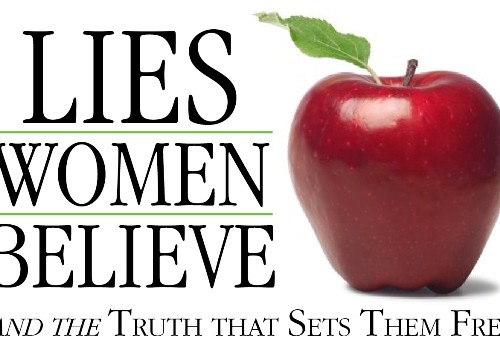I’ve had a few conversations recently about my new-found feminism. Well, not new-found to me, but I’ve suddenly become very public about it, so people I’ve known for a long time are curious. Understandably. These responses have varied– most have just been honestly curious, and our conversations have been that pleasant exchange of directly opposing ideas where no one flies into a terrible violent rage and limbs are severed. A few have gotten mildly tense, but nothing distasteful, all in all.
To answer some of the questions, I had to go back and do some reading. I found Rachel Held Evan’s amazing post on women in the Bible. To be honest, her description of Deborah . . . it rocked my world. I had never thought of her in this context:
As both prophet and judge, Deborah exercised complete religious, political, judicial, and militaristic authority over the people of Israel. She was essentially Israel’s commander-in-chief, said to issue her rulings from beneath a palm in the hills of Ephraim.
D’oh.
What. The. Hell.
Son of a biscuit.
I mean, I’d always known that Deborah was a judge over Israel. But what I’d always been taught was that Deborah didn’t really lead Israel. She played second fiddle to Mr. Manly General Barak.* She was only called upon to be a judge because “a good man was hard to find” (and yes, I’m super proud of myself for working a Flannery O’Connor reference in here. It needs to happen more often). Basically, God was proving a point to Israel: “See, Israel, SEE! You’re so screwed up, I had to go find a WOMAN to lead you!”
So, I did a tiny little bit of digging. First, I read the Bible. And do you know what I discovered?
It doesn’t say ANY of that.
I know, right? Spoilers.
I’ve read it before, of course. I’ve read the Bible through at least ten times. At least. But, somehow, my fundamentalist indoctrination laid down on top of Judges chapters 4 and 5 and told me to read it this way.
And then I went onto The Intrawebs, and inside of 30 seconds, found a few gems for your consideration. One woman starts off her description of Deborah with this amazing little object lesson:
A small congregation in Alabama had one man who would lead singing; but, the poor guy couldn’t carry a tune. So, each time he began, a godly, elderly woman on the second row chimed in with the correct notes. She did not stand and act as leader. She remained seated in a submissive position, while helping him fulfill his God-given responsibility.
My head just landed on my desk. Like, hard.
This is personally frustrating, because this has happened not only to me, but to many women I know. Talented, capable women– but, they’re not men. So even though the men suck at a particular responsibility, or just have straight up have no talent for it, women have to sit on the side-lines, and support men in their “God-given responsibility.” Just… yuck. Because we don’t live in a system where people with competence and ability are recognized. Nope, that would be insane.
But, oh she goes on. She starts talking about how Deborah wasn’t a “power-hungry career woman,” but proudly described herself as a wife and mother. And then, she says that “Israel’s men were weak, spineless, and lacked leadership. They looked to a godly woman.”– and she’s pulled this interpretation from… wait, not from the Bible. No, she quoted a commentary that finished with “This witness [passage] is an instance of strength in weakness. The witness is only a woman. A sign of the decay of the heroic spirit.”
“Strength in weakness.” That’s sounds familiar. Oh, riiiight. It’s basically every single complementarian discussion of submission ever.
But, she wraps up her lesson with this:
What role did Deborah—the prophetess, wife, mother, and judge—play in Israel’s deliverance? She did not lead its army. God commanded Barak to take charge. When he feared the responsibility, Deborah went with him.
This is just . . . so nonsensical to me. Because Deborah is a leader because there weren’t any good men left, but God put Barak in charge, for realsies? He just had Deborah be “fake” in charge to prove a point? Because that’s… consistent (*sarcasm). Seriously, guys– this just ignores common sense. She was a ruler, a judge– just because she wasn’t a general doesn’t make her somehow “not really the leader.” It made her… I dunno, not a general?
Then, there’s the Thankful Homemaker, who wants us to know that it’s important not to take Deborah out of context. We need to make sure that women don’t think they can get all uppity and thinking they’re capable leaders, because, y’know, Bible. It’s so clear that God wants men to be leaders, because, after all, all the apostles were men. But we’re going to ignore Junia, the outstanding apostle, because… well, hmm, we’re ignoring her.
And Deborah, well, good ole’ Deborah only “encouraged a man in his role.” We’re also going to ignore that she was also the Judge, and responsible for the entire nation of Israel. Because, well… uhm… right. We’re ignoring that bit. After all, Deborah described herself as a mother. Obviously that’s the only part we should be paying attention to. Let us ignore that Deborah WAS THE VOICE OF GOD ON EARTH FOR THE PEOPLE OF ISRAEL. Because that’s just… fuzzy. Super unclear, that whole… being a judge… thing.
I found others, but I think I’ve made my point, with much snarkiness, which I haven’t let loose in a while, so thank you for that. What’s disturbing is the lengths these women will go to in order to defend their status as unequal citizens. It reminds me of a book I read once– what was it? Oh, right. Uncle Tom’s Cabin. The one where Uncle Tom thought chattel slavery was just epic, and completely justified?
Also, I’m thinking about starting a possible super-snark series on Women in the Bible, Loud and Proud. (Or maybe not super-snarky. But I like snark, so we’ll see.) Thoughts?
*It’s also not lost on me that this is our President’s first name. Muslim name, people? Really?


